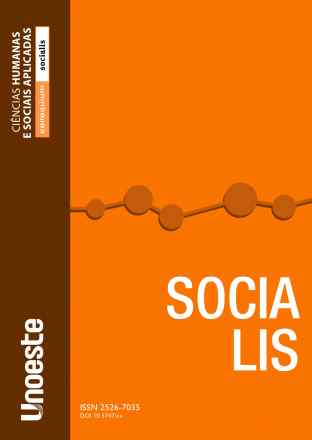DIRIGISMO JUDICIAL NOS CONTRATOS EDUCACIONAIS: LIMITES E CRITÉRIOS À INTERVENÇÃO ESTATAL NO PREÇO DAS MENSALIDADES ESCOLARES
Colloquium Socialis
DIRIGISMO JUDICIAL NOS CONTRATOS EDUCACIONAIS: LIMITES E CRITÉRIOS À INTERVENÇÃO ESTATAL NO PREÇO DAS MENSALIDADES ESCOLARES
Autor Correspondente: Marcelo Farina de Medeiros | [email protected]
Palavras-chave: Livre iniciativa. Defesa do consumidor.Contrato educacional
Resumos Cadastrados
Resumo Português:
Com a organização normativa amparada em uma Constituição Federal analítica, contendo normas gerais e abstratas que reclamam do julgador uma participação ativa na realização do Direito, no caso concreto, abriu-se espaço ao ativismo judicial. Em relação à teoria do negócio jurídico, a formulação de novos paradigmas, como equidade, boa fé e função social autoriza a intervenção estatal nas relações privadas, visando ao equilíbrio das relações sociais, em especial nos contratosde adesão, em relações de consumo. A intervenção estatal, contudo, encontra barreiras nos princípios constitucionais da livre iniciativa e da propriedade privada. O artigo, portanto,adotando o método dedutivo,visa a contribuir com as ponderações sobre a possibilidade de intervenção estatal nos contratos educacionais privados, conciliando o modelo capitalista adotado na ordem econômica eas garantias a ele inerentes com a defesa do consumidor, sem que isso importe em afronta aos limites da Constituição Federal.Para tanto se faz necessária a aplicação da técnica da ponderação dos direitos constitucionais em conflito, sugerindo a não intervenção estatal na fixação do preço privado, mas em revisão contratual para fins de facilitação de pagamento.
Resumo Inglês:
Since the normativeorganization supported by an analytical Federal Constitution, containing general and abstract norms that claim the judges to active participationin the realization of justice, in specifics cases, has been opened space for judicial activism. In the theoryof the contracts, the formulations of new paradigms, such as equity, good faith and social function authorizes the state intervention in privatesbusiness. Especially in the adhesion contracts, in consumer relationships. State intervention, however, have to respect constitutional principles, such warranty of free enterprise, and private property. This article, therefor, through the deductive method, aims to contribute to the considerations ofthe possibility of states intervention in privateeducationalcontracts, reconciling the capitalist model adoptedin Federal Constitution order and the guarantees inherent to with the protection of consumers, without this implying as affront to the Federal Constitutionlimits.To this is necessary to apply the techniqueof weighing constitutionalrights in conflict. The article suggests that State should not intervene in setting private prices, but to facilitatepayments.

